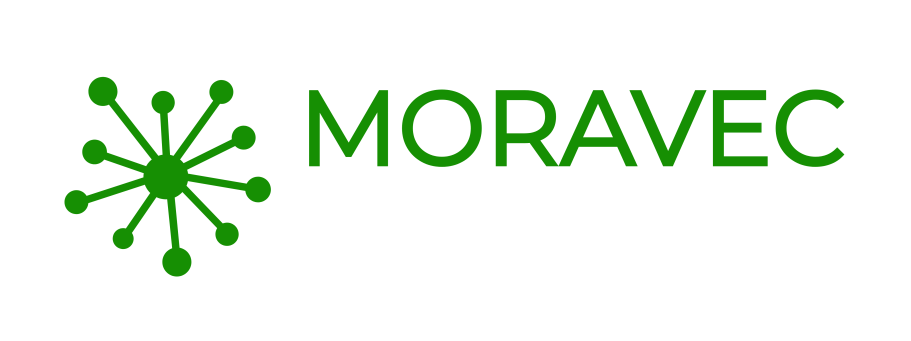Thanks for stopping by! I’ve moved my website to moravecediting.com.
You can now find all my old posts and new posts there.


Thanks for stopping by! I’ve moved my website to moravecediting.com.
You can now find all my old posts and new posts there.


The writing and editing of peer-reviewed research is a specialist topic. Few other types of writing will let you get away with the otherwise archaic terms like “hence.” Moreover, the expected structure of a research paper is highly rigid.
Journal publishers have some really good material for learning how to write a research paper. These resources are good because they address exactly what the journals want. In addition, (unlike an essay writing service) they are completely free and ethical to use.
Elsevier has the Researcher Academy
IEEE has the IEEE Author Center (good for electrical engineering and computer science).
Springer has author and reviewer tutorials in English, Spanish, Portugese, and Mandarin.
Nature Research (the publisher of Nature) has Nature Masterclasses. These courses are not free, but there are some free samples.
In addition, the reputable editing company Edanz has the Edanz Learning lab, which includes a large amount of well-presented information about writing and publishing in both English and Japanese. Many resources in the Learning Lab are free.
Finally, for learning to write about heavily mathematical material, I recommend Donald Knuth’s Mathematical Writing. It is dense and wanders a fair bit, but addresses a lot of issues that no other style guide covers. It was a great help to me when I was learning to edit mathematics.
I hope this list gives you some good leads, and I wish you the best of luck writing your paper!
Many abbreviations have a period at the end, for instance, “Feb.” and “etc.”
Sentences also can have a period at the end. So what do you do when an abbreviation occurs at the end of a sentence? You might wonder if two periods are needed, one for the abbreviation and one for the sentence, e.g., “milk, bread, eggs, etc..”
In fact, when the term “etc.” ends a sentence, the Chicago Manual of Style states that one period is used.
Incorrect: “milk, bread, eggs, etc..”
Correct: “milk, bread, eggs, etc.”
In this case, the period performs two functions: it ends the abbreviation and it ends the sentence.
However, what happens when “etc.” occurs just before a question mark? After all, a question mark does contain a “period” underneath the squiggly bit.
The answer is that the period within the question mark cannot do double duty as a period for the abbreviation. In the English writing system, the question mark is a single unit that cannot be separated into its component strokes. You hence need a separate period for the abbreviation.
Incorrect: “milk, bread, eggs, etc?”
Correct: “milk, bread, eggs, etc.?”
This is true for exclamation marks as well.
I edit many papers after they’ve been rejected or sent back to the authors for major revisions. Often, I see the peer-review comments as well, and I see many mistakes come up again and again. Rejection is an inevitable part of academic publishing, but it is possible to minimize it somewhat. To give your paper the best possible chance of publication, I recommend the following.
To avoid being rejected by the editor during an initial screening:
Peer reviewers are looking for two things: methods that work and methods that are novel. To avoid being rejected by peer reviewers, I recommend the following basic steps:
I hope these tips are helpful, and I wish you the best of luck with your research, whatever journal you choose for submission.

I don’t believe that there is one correct way of speaking and that those who don’t use it are uneducated and/or stupid. Language is a fantastically complex human activity. One formal style is not flexible enough for the full range of human communication needs.
However, academic writing for conferences or journals is a special case. Using formal English is like putting on a good outfit and brushing your hair for a job interview. If you clearly care about correct style, this implies that you also care about other good research practices, such as doing a thorough literature review or ensuring your data are accurately reported. This makes the reader more disposed to believe what you are saying, which is to your advantage.
Formal English should also be used because academic writing is intended for an international audience. It isn’t respectful to ask readers with variable levels of English to puzzle over slang terms and idioms in order to understand the actual ideas presented in a paper. In contrast, formal English has been carefully formulated to be precise and clear. Ultimately, it’s to also your advantage to ensure your research is as widely disseminated as possible among everyone, and that includes the vast number of non-native speakers.
Finally, academic publishing is extremely competitive. If you want to be published, it’s best to use every trick you can to make your paper look better than the other papers submitted for publication.
In real life, formal English is not necessary or even a good idea. In an academic paper, however, I recommend keeping the language formal.
The basic rule for articles in English is that you use “a” for words that begin with consonants and “an” for words that begin with vowels.
However, if you are talking about abbreviations, especially in science papers, this basic rule doesn’t work. In fact, the choice between “a” and “and” is based on the pronunciation of the word, not the spelling. For instance, “UFO” (which stands for unidentified flying object) begins with the vowel “U” but is pronounced “you-eff-oh.” Hence, the pronunciation starts with the consonant sound “y” and “a UFO” is correct.
an AMD chip because it is “an ay-em-dee chip”
a GPS device because it is “a gee-pee-ess device”
but
an SRT because it is “an ess-are-tee”
There are exceptions! This happens when abbreviations are easy to pronounce as words. For instance, “a MATLAB program” or “a SIFT feature” are correct because these abbreviations are pronounced as if they were words.
How do you know if this is the case? For instance, is it “a HOG feature” or “an HOG feature”? There is no easy answer unless you spend time with researchers in this speciality and hear them talk. The other option is to google both phrases (surrounded by quotes) and look to see which is more commonly used.
Another notable exception to the basic rule occurs in fields such as physics and semiconductors, where chemical names are used. For instance, Si, which stands for silicon, is actually read out as “silicon,” not “ess-i,” so it is “a Si-wafer chip,” not “an Si-wafer chip.”

“U F Off”by pic fix is licensed under CC BY-NC-ND 2.0
Since Donald Trump has become president, there have been many protests across the USA.
In normal English, the term “since” can mean “because” or a period of time after an event. Both uses are fine. However, in the above sentence, the meaning of the author is not clear. Does the author mean the protests happened because Donald Trump became president, or does the author mean the protests happened after Donald Trump became president? The two concepts are closely related (and perhaps the author means both), but in academic writing, a sentence like this should be avoided. It is important for the meaning of the language to be precise so that the ideas are clearly expressed.
To avoid ambiguity in academic writing, it is best to use “since” only to refer to time and use “because” elsewhere. Hence, the author would write
Because Donald Trump has become president, there have been many protests across the USA.
to convey the cause of the protests, and
Since Donald Trump has become president, there have been many protests across the USA.
Consider the following sentence:
We fed the puppies, Bobbles, and Fluffy.
In English, for lists of more than three items, the items are separated by commas, that is, all except for the last item, which must be separated by the word “and.” The “and” signals that this is the end of the list. However, is it also necessary to use a comma in this case?
We fed the puppies, Bobbles and Fluffy.
In British English and much English taught in Asian countries, it is not necessary. The “and” takes the job of the separator, so a comma is seen as redundant.
I used to write this way as well. However, not using the Oxford comma can lead to situations in which the text is ambiguous. This is because a comma has more than one purpose in English. In addition to separating a list, a comma can separate two parts of a sentence.
So the above sentence could be interpreted to mean that we fed two puppies, one named Bobbles, and one named Fluffy, when we really meant that we fed the puppies, and then we fed two more pets, one pet named Bobbles and one pet named Fluffy, who are different from the puppies.
A recent court case that hinged on the Oxford comma was recently decided in the favor of delivery drivers who wanted overtime pay. The regulations were written in a similar way to the above. The regulation that stated what is not covered by overtime is as follows:
The canning, processing, preserving, freezing, drying, marketing, storing, packing for shipment or distribution of:
(1) Agricultural produce;
(2) Meat and fish products; and
(3) Perishable foods
They meant that both packing for shipment and distribution are not covered by overtime pay. However, this sentence could be read as packing for shipment and packing for distribution are not covered by overtime pay. Hence, distribution must be covered.
The court ruled that the comma was needed, and therefore overtime should be paid to the drivers who distributed the goods.
It is hence best to use the Oxford comma, especially in academic writing, where the precise interpretation of text is essential. It is also recommended even when writing in British English.
A spell checker is an excellent tool, but it is not foolproof. For instance, if a misspelled word is also an English word, the spell checker will not catch it. I often see the following errors in my edits:
If any of these words pop up in your paper, it is worth having a quick check for their common misspellings.
 Consider the title “A novel method for kitten clustering based on fluffiness.” To ensure it is as short and concise as possible without losing information, I suggest looking at the following three issues.
Consider the title “A novel method for kitten clustering based on fluffiness.” To ensure it is as short and concise as possible without losing information, I suggest looking at the following three issues.
Using these tips, we went from the nine-word title “A novel method for kitten clustering based on fluffiness” to the three-word title “Fluffiness-based kitten clustering” without losing any critical information about the content of the paper.